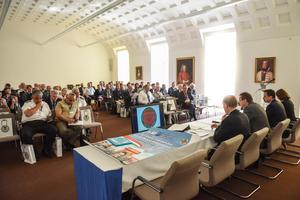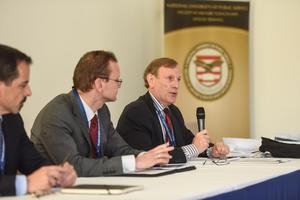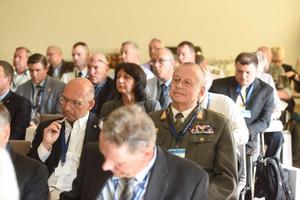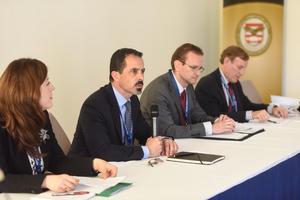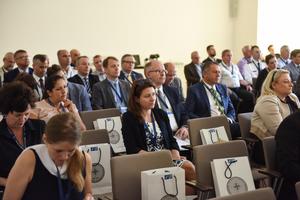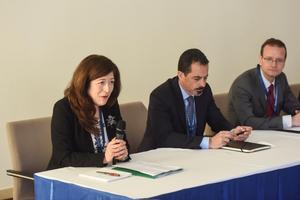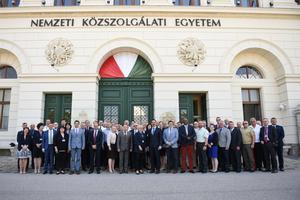The Clearing House on Defence Education conference was held this year in Budapest. The high profile conference, which has been held for the eights time, was co-organized by the Hungarian Ministry of Defence, the Defence Education Enhancement Programme (DEEP), the Partnership for Peace Consortium of Defense Academies, the Security Studies Institute, and last but not least the National University of Public Service (NUPS).
“The aim of today’s discussion is to talk about the reform of military and defence education”, stated György Rábai in his opening remarks. According to Mr. Rábai, the Head of Defence Policy Section of the Hungarian Ministry of Defence, NATO has to face numerous threats. Although there is stability in Europe, it is threatened by outside factors, such as migration and terrorism. “The security sectors has to be revised, we need more, highly trained soldiers and further dialogues on these matters”, explained Mr. Rábai.
Marc Di Paolo, Director of Defense Institution and Capacity Building at NATO, further underlined the diversity of challenges. “for a long time, NATO had one adversary, but that changed in the 1990’s”, stated he. Nowadays, it is hard to determine our opponents exactly, when we face such challenges as terrorism, migration, cyber-attacks, or the spread of weapons of mass destruction. “It is vital, that these issues may be discussed more and more”, the director concluded.
“Challenges have to be answered with cooperation”, said Biatrice Cretulescu, defence advisor to the Romanian delegation to NATO, while also stressing that national capacity building, education and training all have to be strengthened.
Alan Stolberg, coordinator of the PfP Consortium, talked about the establishment and the roles of the Defense Education Enhancement Program (DEEP). The idea comes from Brussels, where they decided to tighten cooperation in the field of defence education. “Every teacher has to be trained before we entrust them with students”, said Mr. Stolberg. The programme’s central aim is to support the reform and development of military education institutions in every partner state. There are three main functions in the programme: help provided for the partners, transferring suitable teaching methods, and supporting education institutions in becoming successful. Naturally, all this has been preceded and made possible by expert consultations and long planning.
The three-day event continued with many panel discussions placing the most urgent problems under scrutineering. Presentations focused on Serbia, North-Macedonia, Bosnia and Herzegovina, Mongolia, Kazakhstan, Uzbekistan, Moldova and the MENA countries.
